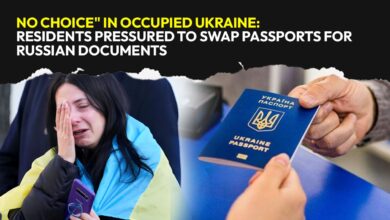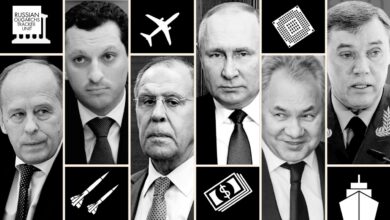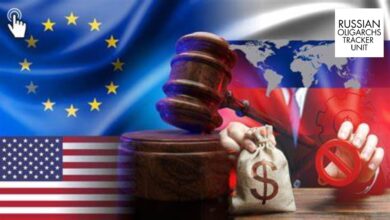VC Firm Target Global Under Scrutiny for Alleged Russian Connection Cover-Up
Get the latest on Target Global, as the VC firm faces allegations of a Russian connection cover-up. Stay informed about the investigation and its potential consequences
A lawsuit filed against the VC firm Target Global alleges that it concealed the Russian nationality of the directors of an affiliated company, particularly as Western sanctions against individuals connected to the Kremlin were taking effect.
This legal action has emerged amidst increased scrutiny of the venture capital industry following UK sanctions imposed on certain Russian individuals. Additionally, with heightened geopolitical tensions, more startups are now inquiring about the backgrounds of their investors.
Target Global has stated to Sifted that it has put in place measures to ensure compliance with sanctions and has confirmed that none of its directors are Russian citizens. Furthermore, the firm emphasized that none of its staff members have ever had any contact with the plaintiff in the lawsuit, Iryna Gordiy, and that it was not a party to any agreement with her.
Target Global was established in 2015 and has provided support to various companies, including Revolut, Auto1, and Delivery Hero. It stands as one of the largest investment funds across Europe and showcases a portfolio of more than 100 companies on its website. Their most recent fund was unveiled in 2020, boosting their assets under management to exceed €1 billion.
The company was founded by the son of Alexander Frolov Sr., who is now subject to sanctions as a Russian oligarch. For the first time, Target Global has officially confirmed to Sifted that another Russian oligarch, Alexander Abramov, who has also been sanctioned, was previously an investor in the fund but is no longer associated with it.
The legal action
In November 2022, Finadvant, a London-based cross-border payments firm, was bought by a Dutch counterpart named Finom. Target Global had invested in both of these companies.
In July, Gordiy, a Ukrainian entrepreneur and the founder of Remeeta, another cross-border payments company, filed a lawsuit in London’s Commercial Court. Gordiy asserts that she had a sales purchase agreement with Finadvant.
The lawsuit alleges that Jekaterina Dorofejeva, the founder of Finadvant, failed to promptly report the change in ownership after the acquisition. This failure is claimed to constitute fraud, as it involved providing inaccurate information to the UK’s Financial Conduct Authority (FCA).

It is claimed that the founder of Finadvant informed the FCA that both she and Target Global still had a minority stake in the company, even though it is alleged that PNL Fintech B.V., trading as Finom, supposedly owned the entire company.
Dorofejeva, the founder of Finadvant, has been defended by her lawyer, who asserted that she did not engage in any fraudulent activities, misrepresentations, or wrongdoing. The lawyer also mentioned that the FCA had not suggested that they had received inaccurate information.
Why is PNL Fintech/Finom significant?
The lawsuit asserts that the directors of PNL Fintech/Finom are Russian citizens and that Target Global primarily owns the company. It contends that the delayed disclosure of PNL Fintech/Finom as the ultimate beneficial owner allowed Target Global and Dorofejeva to avoid the more rigorous checks required for Russian citizens.
Target Global, in communication with Sifted, denies being the primary owner of PNL Fintech/Finom, emphasizing that it is a minority investor and lacks the authority to oversee the information the company shares with the FCA. Financial documents list Mikhail Lobanov, a co-founder of Target Global, as a supervisory director of PNL Fintech/Finom. An SEC filing from March 2022 classifies Lobanov as a Russian citizen, but Target Global now asserts that he is a citizen of Kyrgyzstan.
The lawsuit suggests that the delay may have had valid reasons, or there could be undisclosed factors related to potential money laundering.
Target Global asserts its inability to respond to the claims due to insufficient information, asserting that it never engaged in an agreement with the claimant and that none of its employees have met her.
Dorofejeva’s attorney, as conveyed to Sifted, maintains her innocence, stating that she has not engaged in fraud, made any misrepresentations, or participated in any unlawful activities. The attorney further asserts that there are no allegations specifying money laundering issues.
Who owns Target Global?
Target Global was established in 2015, with Yaron Valler, Shmuel Chafets, Mike Lobanov, and Alexander Frolov, the son of Russian oligarch Alexander Frolov Sr., as its co-founders.

In November 2022, Alexander Frolov Jr. stepped down from his position at Target Global. This decision came in the wake of sanctions imposed by the UK government on his father. It’s worth noting that Alexander Frolov Jr. himself was not subject to any sanctions. However, he chose to divest all of his shares in Target Global, which were subsequently purchased by other shareholders of the company, according to a recent statement provided to Sifted.
Target informed Sifted that Alexander Frolov Sr divested his investments in Target Global “several months before any sanctions,” and similarly, Alexander Abramov, the chairman of the Russian steel producer Evraz, also sold his investments prior to the sanctions, according to a spokesperson. Although both Frolov and Abramov were sanctioned by the UK government in November 2022, Target had not previously acknowledged Abramov’s investment in the fund.
In the wake of the full-scale invasion of Ukraine in 2022 and the subsequent sanctions on Russian individuals and entities, numerous venture capitalists (VCs) and startups have been reevaluating their connections with Russia. VCs known to have ties with Russia include DST Global, Redline Capital, and RTP Global.

For startups, particularly in regulated sectors like financial services, clarity regarding investor identities and limited partners (LPs) is crucial. The ongoing case involving Gordiy, Target Global, and Dorofejeva adds further complexity to these considerations.








